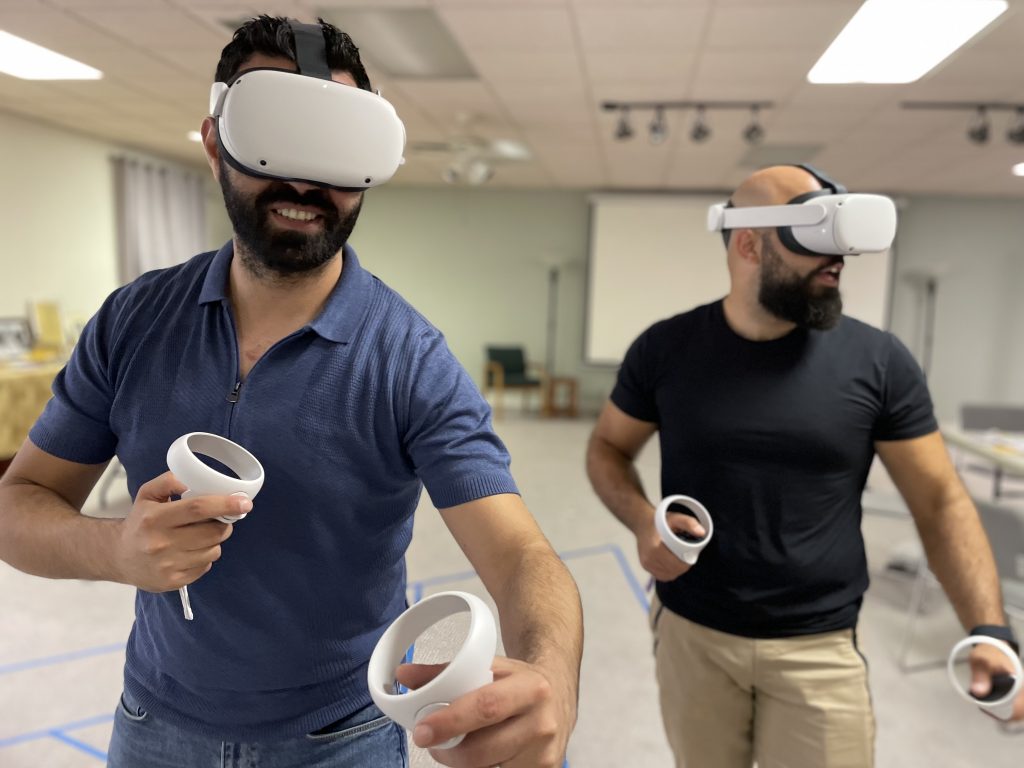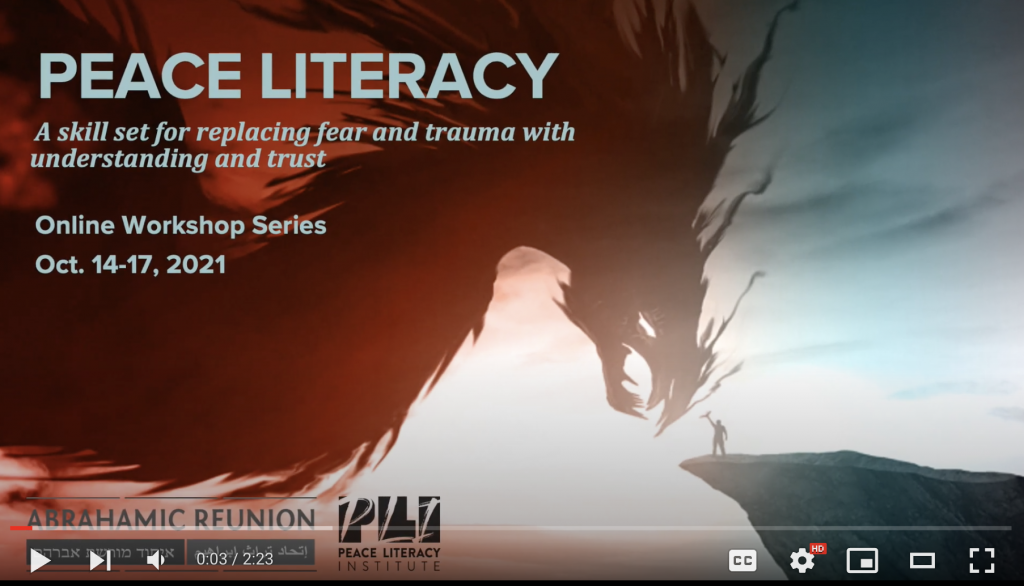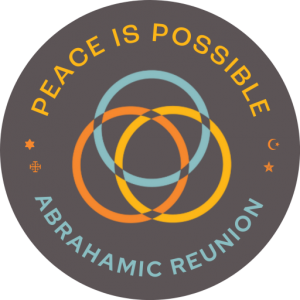

October 2021, Sarasota, FL
This October, through the generosity of Paths To Peace, the AR staff and board had the opportunity to work with the Peace Literacy Institute. PLI was started by a US veteran with the idea that if we spent as much time and energy teaching the skills of peace as we do teaching the skills of war and defense to our military, peace would flourish.
PLI is developing online Virtual Reality (VR) worlds that include peacebuilding exercises in self-understanding, empathy, and other values shared with the Abrahamic Reunion. The AR is working to translate into Arabic and Hebrew for the Middle Eastern audience we work with, was given several VR headsets, and is working to find ways to integrate VR into our programs.
“The potential is huge, like digital lucid dreaming, which has huge possibilities for transformation.” – David Less
“With this we can give them to see inside the hope for the future, because many people they lose their hope.” – Abed Manasra
Hermione Garland: “It maps out 7 Roots of Healthy Belonging, and the non-physical human needs that lie beneath conflict. Together, these provide essential building blocks needed to move toward peace.”
Ira Harrit: “The use of VR can powerfully immerse participants in… lessons… provides great potential for increasing the impact of the learning experiences and changes in behavior.”
Links:
- Watch a 2-Minute Video that PLI made of positive feedback from AR staff and board.
- AR Comments and Endorsements written up by PLI
- PLI writeup of our workshop, and other work by PLI

Full Comments and Endorsements:
“The material shared by the Peace Literacy team was well conceived, well organized and well presented. It maps out 7 Roots of Healthy Belonging, and the non-physical human needs that lie beneath conflict. Together, these provide essential building blocks needed to move toward peace. The Peace Literacy process provides a valuable framework for the Abrahamic Reunion’s work in Israel and Palestine which incorporates many of these key elements in diffusing conflict and developing peace minded communities across differences.
The Virtual Reality platforms provided by Peace Literacy, are groundbreaking in providing realms of shared experience in deep, fun and creative ways not only to those who are able to meet in person, but to those separated by fear, distance, Covid safety precautions and political restrictions. These platforms are especially attractive to youth and will enable new pathways to reach young people who might otherwise have been left behind.
The Abrahamic Reunion’s work of replacing fear and trauma with understanding and trust in the Holy Land will be well-served by Peace Literacy principles, by the framework of recognizable indicators of change, and the extraordinary opportunities afforded by the use of Virtual Reality. Further, Peace Literacy principles put to use within the organization itself will enable the Abrahamic Reunion to further develop a culture of deep respect, trust and empathy for those who together do the work. My sincere thanks to Paul, Shari, and Jo Ann for bringing the Peace Literacy Process to the Abrahamic Reunion.”
Hermione Garland Abrahamic Reunion US Board of Directors
“Peace Literacy: A skill set for replacing fear and trauma with understanding and trust”
“We are grateful for the work of Paul, Shari and Jo for creating the Peace Literacy program and sharing it with the Abrahamic Reunion. The Peace Literacy program’s grounding in the recognition that much aggression and conflict is caused by current and past experiences of threats to the meeting of non-physical human needs provides a powerful foundation upon which to reduce aggression and destructive conflict.
This approach to help students and adults increase their self-awareness and avoid unknowingly threatening these needs in others is very valuable. This, combined with providing skills and strategies training, helps people become more able to purposely with empathy build stronger relationships and help empower them and others to fulfill these non-physical needs and reduce negative conflict.
The use of Virtual Reality can powerfully immerse participants in Peace Literacy lessons and provides great potential for increasing the impact of the learning experiences and changes in behavior. I and other Abrahamic Board members see many complementary dimensions to Peace Literacy’s work with the peacemaking work we do in Palestine and Israel and look forward to incorporating Peace Literacy’s curriculum and VR experience into our work. Ira Sirkar Harritt Abrahamic Reunion Board Member
“Peace Literacy Institute (PLI) offers an accessible framework for increasing participants’ understanding of themselves, others, and how the meeting of inner needs is a driver of conflict, conflict resolution, and peace. These ideas further describe a way for peacebuilding organizations like the Abrahamic Reunion to create and maintain healthy community, and chart development with a system of measurable, progressing markers.
PLI’s insights are then packaged in an RPG-style VR experience that is especially attractive to the Israeli and Palestinian youth and young adults the Abrahamic Reunion works with in de-radicalization and peacebuilding. Drawing on psychology, myth, and technology, these trainings offer virtual embodied experiences of the curriculum’s metaphors for up-leveling our lives with empathy, understanding, and healthy belonging.
Embracing elements of both the mythic heroic quests and modern gamer-culture, this framework can meet youth where they are right now. Bringing peace, emotional intelligence, and self-understanding into the virtual arena will ripple out into online culture, which is where so much interaction occurs today. Thanks, PLI, for bringing peace online!”
Chris Miller Executive Administrator, Abrahamic Reunion


